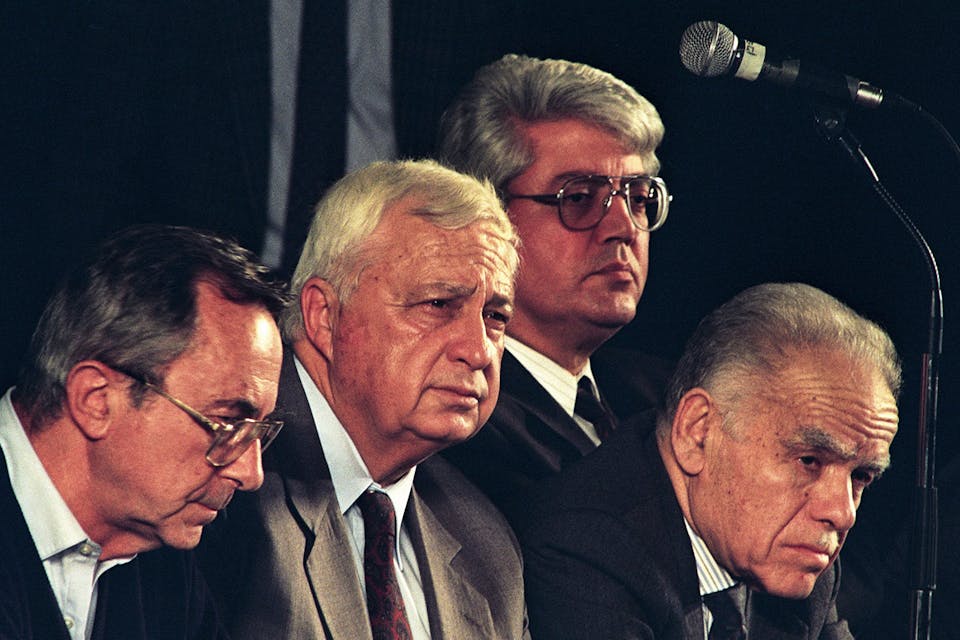
March 28, 2018
Self-Portrait of a Zionist Statesman and Thinker
As his new memoir brings home, Moshe Arens is one of the most accomplished, articulate, and clear-eyed figures in Israel's history. What a pity that his best ideas were often thwarted.
Two major political parties in Israel still bear the names “Labor” and “Likud,” but the contending ideologies that fueled their founding—and animated the venomous quarrels between them—seem to be fading away. Where Labor is concerned, union membership continues to plummet, biting into the party’s natural constituency, and voters have continued to blame it for the failures of the Oslo Accords and the long years of Palestinian violence that ensued from them.
As for the Likud party, led for now by Prime Minister Benjamin Netanyahu, it still sometimes presents itself as the inheritor of the Revisionist Zionism of Vladimir Jabotinsky. But beyond a general disposition for national toughness—and a growing dislike for both the country’s over-powerful supreme court and over-calcified bureaucratic establishment—it is not clear what a post-Netanyahu Likud would stand for.
In a country built upon highly-charged ideological politics, the weakening of the old lines of division is a major development, perhaps salutary, perhaps not. But that’s reason enough to welcome In Defense of Israel, the recently published memoirs of Moshe Arens—one of the most accomplished, articulate, and clear-eyed figures on Zionism’s Revisionist wing. A founder of Israel’s defense and aeronautical industries, Arens was the most important early patron of Benjamin Netanyahu. During the 1980s and 1990s he served as Israel’s defense minister in three different governments and as foreign minister during the First Gulf War.